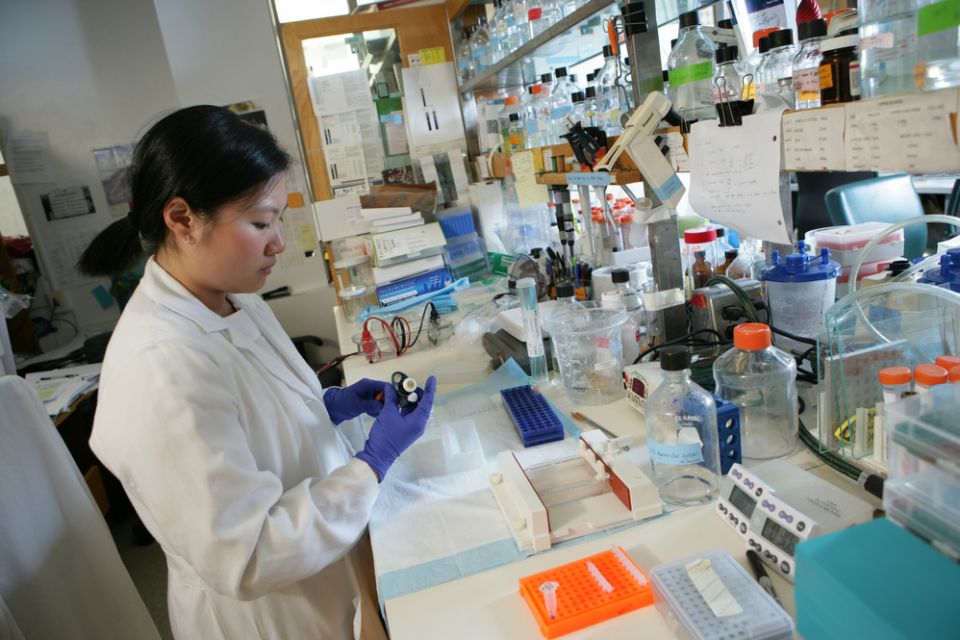
Overview
The Weill Cornell Graduate School (WCGS) programs in Biochemistry & Structural Biology, Cell & Developmental Biology, and Molecular Biology are collectively known as the BCMB Allied program and operate as an alliance. A graduate degree or doctoral degree in Molecular Biology at Weill Cornell Graduate School draws from a faculty of forty recognized globally in medical science.
The Molecular Biology program offers opportunities to develop research training in the molecular pathways involved in control of cell growth, replication and responses to environmental changes. These pathways are remarkably intricate, tying together nearly all the fundamental processes of cellular metabolism. For example, the products of oncogenes, including both tumor-suppressing and tumor-enhancing genes, have been discovered to participate in pathways as seemingly diverse as signal transduction, repair of damaged DNA, regulation of gene expression and control of the cell cycle.
The programs' internationally recognized faculty is comprised of nearly 40 members, whose diverse research interests can be grouped under three broad topics: (1) mechanisms of differentiation, growth control and development; (2) mechanisms of DNA replication, DNA repair and chromosome maintenance; and (3) transcriptional control of gene expression and mRNA biosynthesis.
Program Requirements
Admissions
PhD students are admitted to the Molecular Biology program through the BCMB Allied program. Applicants are not required to take the take the Graduate Record Examination (GRE). Applicants whose native language is not English are required to take the TOEFL examination.
Becoming a Doctoral Candidate
In their first year, BCMB Allied students take the program's core curriculum courses in molecular genetics, biochemistry and structural biology, cell biology, gene structure/function, and logic and critical analysis. A course list and course descriptions are available at: Courses.
Lab rotations are an important component of the students' first year as well. Each student completes three laboratory rotations, which help him/her decide on a research focus and select a thesis mentor by the end of the first year.
The choice of a mentor determines the student's program assignment: Biochemistry & Structural Biology, Cell and Developmental Biology, or Molecular Biology. The mentor helps the student select his/her Special Committee, consisting of the mentor and two other faculty members knowledgeable in the student's research field. The committee evaluates the student's research and progress through the rest of his/her WCGS career. Selection of the mentor and the committee typically occurs before the student starts the second year of study.
In spring semester of the second year, the student takes the Admission to Doctoral Candidacy Examination (ACE), which includes a written component (a research proposal), and an oral examination in which the student defends the proposal and demonstrates general knowledge. Committees made up of program faculty members administer the written and oral ACE. When a student passes the ACE, she/he is a candidate for the PhD degree.
PhD Research and Degree
Within six months of passing the ACE, the student must submit a five-page thesis project description to the Special Committee and meet with the committee for its approval. Thereafter, the student and the committee meet together regularly - at least annually - from year two until the student's graduation.
During the second through fourth years, while working in the laboratory, the student must also complete one elective course (two quarters) and participate in in-depth focus groups which examine topics relevant to the fields of biochemistry, cell biology and molecular biology.
The culmination of the student's successful progression through the program is the final examination (the "defense") and certification by the Special Committee that the thesis represents an official piece of research that satisfies the requirements of the WCGS for the PhD degree.
